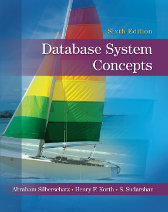![]()
Setting up Oracle
The Oracle database can be downloaded from http://www.oracle.com/technology/software/products/database/index.html. As of when this page was created, Oracle 11g Release 2 was the latest version.As per http://www.oracle.com/technology/software/index.html (as of 5 July 2010), All software downloads are free, and most come with a Development License that allows you to use full versions of the products at no charge while developing and prototyping your applications, or for strictly self-educational purposes. See the Oracle web site for further details. Instructions for setting up Oracle on a variety of flavors of Linux can be found at http://www.oracle.com/technology/tech/linux/install/index.html, while instructions for installation on Windows can be found at http://www.oracle.com/technology/obe/11gr1_db/install/dbinst/windbinst2.htm. Oracle SQL Developer is a useful tool for browsing an Oracle database and executing queries on the database. The SQL Developer home page, including links for downloading it, can be found at http://www.oracle.com/technology/products/database/sql_developer/index.html.
Connecting to and Executing Queries on Oracle
Once Oracle is set up, you can connect to it using Oracle SQL Developer, or the Netbeans IDE. JDBC drivers for Oracle, as well as libraries for connection pooling of JDBC connections may be found at http://www.oracle.com/technology/software/tech/java/sqlj_jdbc/index.html.SQL Tips on Oracle
Oracle supports most of the SQL standard syntax covered in the book, including most advanced features, but there are a few differences that you should watch out for. We list a few commonly encountered ones below (some of these may apply to some versions of Oracle, and not others):- The as keyword is not supported in many contexts; for example, to rename a relation in the from clause, instead of using relnameasnewname, you should simply use relname newname.
- The except keyword is not supported; instead, use minus.
 Database System Concepts
Database System Concepts